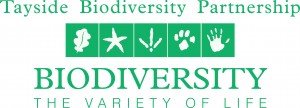Do A Little - Change A Lot! Every Action Counts
At Home And In The Garden
- Use less chemicals in the house and garden to avoid polluting the environment and harming insects.
- Use more recycled and environmentally-friendly products in the home and garden to help protect the aquatic environment.
- Make your own compost using waste from your kitchen and garden – it is free and you will help save natural resources.
- Use peat-free compost – both in the garden and for house plants – help save rare bog habitats.
- Plant a tree – either a native species such as rowan or bird cherry, or an old Scottish variety of fruit tree.
- Create a wildlife corner in your garden: it can look good, adds interest, benefits butterflies and moths and helps control garden pests.
- Plant an ‘edible hedge’ to feed the birds in the winter – use berry-bearing native species.
- Restore or build a garden pond but don’t forget to make sloping sides to safeguard wildlife.
- Build a simple habitat pile of logs and branches to encourage hedgehogs, toads and a variety of insects.
- Create a ‘housing estate’ for wildlife! Put up a bird or bat box either on a garden tree or on the outside of the house or garage.
- Plant shrubs such as hebe, lavender, honeysuckle and buddleia, and flowers (candytuft, nasturtium, aubrietia and flowering herbs) to attract butterflies, birds and bats – and encourage your workplace or school to do the same.
- Create a wildflower meadow (use Scottish-grown seeds) either in the corner of your garden or encourage your local authority to plant one, perhaps along a roadside verge or in the local park.
At Work or School
- Plant up a butterfly-friendly window box for use at home, work or school.
- Help your local school, hospital or sheltered housing complex create a wildlife area in their grounds.
- Plan an attractive outside recreation area for work lunch breaks or as an alternative summertime waiting room at your health centre. By planting shrubs and flowers attractive to butterflies, birds and bats, you will benefit wildlife at the same time as your health.
- Become a House Martin ‘landlord’ – encourage summer visitors such as swift, swallow or house martin to nest on the building by providing a suitable nestbox.
- Check that the potted indoor plants at work or school are in peat-free compost.
In The Neighbourhood
- Encourage your local golf club to take part in the Scottish Golf Course Wildlife Initiative.
- Suggest a community orchard or wildflower meadow be created for all ages to enjoy.
- Repair or build a drystane dyke to provide shelter for animals and plants such as wall rue, lichens or mosses.
- Offer to put up a nestbox for birds and bats for an elderly neighbour, or donate one to your local shop, workplace, doctor’s surgery or community centre.
- Ask you local Community Council or Residents’ Association to adopt an area for wildlife.
- Assist in the new Local Patch Project by surveying the wildlife on your doorstep.
- Offer your help to one of the Tayside Biodiversity Partnership’s sub-groups.
- Help implement the actions in any of the Habitat or Species Action Plans – there’s plenty to choose from and everyone can help.
At Leisure
- Join and help a conservation group – see new places, learn about your environment and keep fit at the same time.
- Don’t buy souvenirs that encourage exploitation of the natural world – either here or abroad
- Support ‘green tourism’ initiatives on holiday and participate in any green schemes run by hotels and guesthouses.
- Find out about your destination before you travel – it may be an environmentally-sensitive area or you may be able to contribute to a local biodiversity project to enhance it.
- When on holiday let the local people know how much you appreciate their natural environment so that they see its economic value.
- Remember that air travel uses large amounts of fossil fuels and creates greenhouse gases. Find out about organisations such as Climate Care and support the development of renewable and clean energy projects to reduce carbon dioxide emissions. Check out www.climatecare.org
- Take all rubbish home from the beach – it can endanger wildlife if left behind.
- Boats and jet skis create noise and chemical pollution which disturbs wildlife – don’t leave the engine running unnecessarily.
- If you are sailing, surfing or windsurfing, keep a distance of at least 100m from seal resting or bird nesting sites to avoid disturbing them and only view dolphins and whales in their natural environment with a responsible boat operator.

